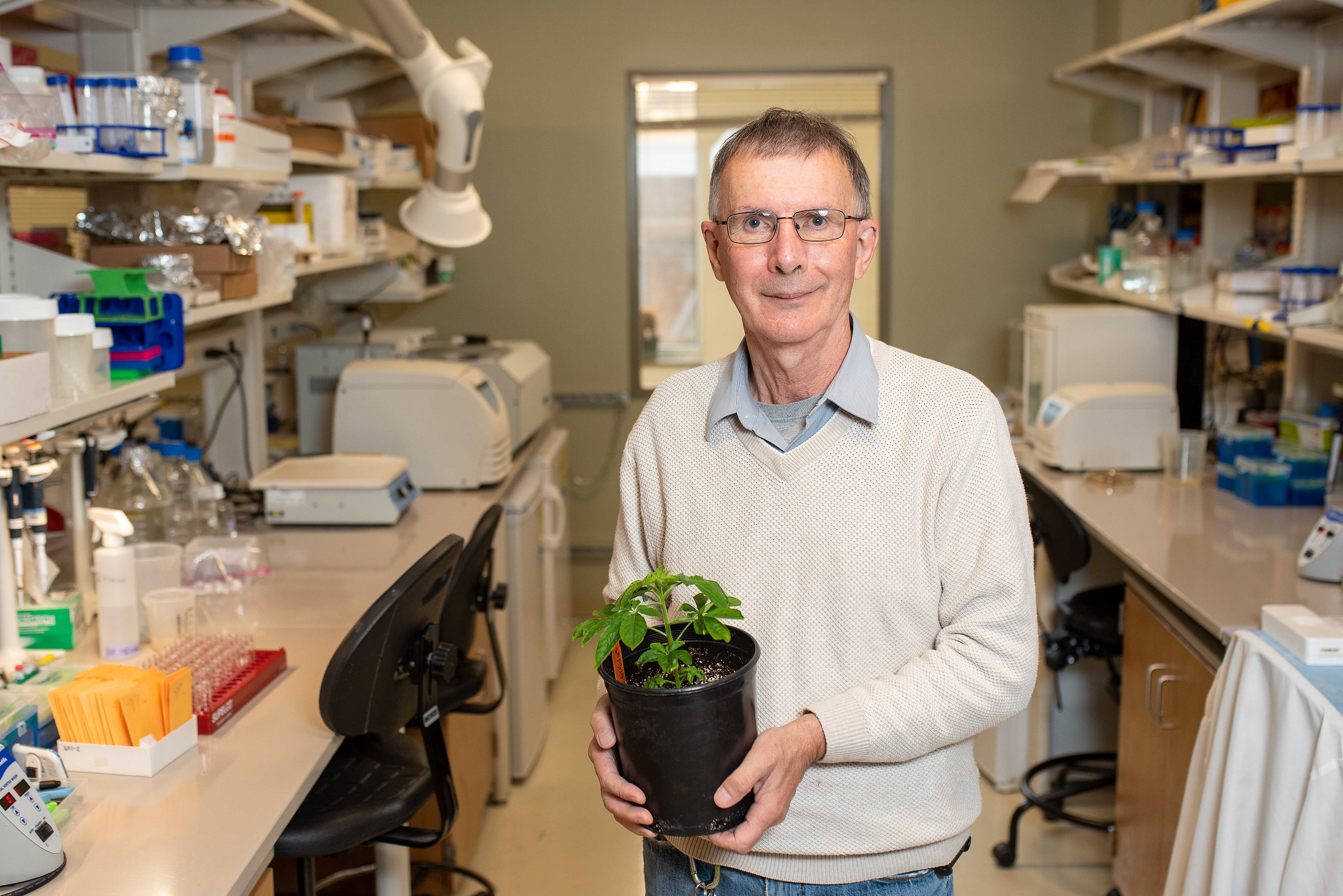DENTON (UNT), Texas — A University of North Texas College of Science professor has moved researchers across the globe closer to understanding how to make condensed tannins in forage crops such as alfalfa, not only making food more nutritious for animals, but potentially improving food supply and limiting global warming.
Tannins are biomolecules that bind to proteins in the human and animal diet. This binding slows the rate of protein degradation in ruminant animals like cattle, sheep and goats, resulting in reduced methane emissions. Tannins are abundant in coffee, tea and wine, where they affect flavor and provide human health benefits, giving the research far-reaching applications.
A recent paper in Science Advances discusses the progress Richard Dixon, associate director of the BioDiscovery Institute at UNT, and his team have made in their work to understand how plants make condensed tannins. Their goal is to engineer condensed tannins to make alfalfa more nutritious and less likely to cause bloat in livestock.
“This paper may be the final step in understanding an incredibly complicated process,” Dixon said.
He said the research could not only affect food supply for animals and humans who eat the animals, but also potentially have environmental effects on greenhouse gases.
“The negative contributions of agriculture to climate change through methane release from cattle are huge,” Dixon said. “Developing forage crops that would result in less methane production is really important, if we're to carry on eating beef going into the future. An understanding of tannins can make the wine better and the steak more sustainable.”
Dixon has worked on the synthesis of tannins for several years, pushing the field toward a more complete understanding of how the molecules are made within plants. UNT researchers Ji Hyung Jun and Nan Lu, co-authors on his most recent paper, are looking to expand on the research with other crops.
They are currently working with Dixon to increase tannins in soybeans and introduce them into corn, where tannins are not naturally found. Corn is proving more difficult, as it is not clear what is missing to allow tannin formation. The research could lead to breakthroughs in issues facing many food types.
“Beans are a staple crop in many developing countries,” Dixon said. “The tannins in the seed coats of beans may be detrimental as they can bind iron, causing iron deficiency in people for whom these crops are a main component of the diet. From our perspective, the more we know about how to make tannins, and how to not make tannins, the more applications we can find.”
Dixon said he is looking forward to seeing what future researchers do with the research he started. In many cases, his past breakthroughs have shown that the ways in which these complex molecules are formed are much more nuanced than anyone initially believed.





